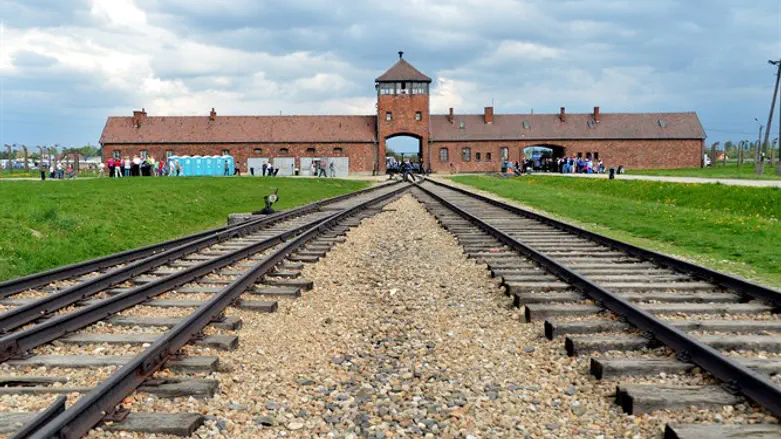
The controversial Holocaust Law in Poland has not only strained Polish-Israeli relations, but has triggered a campaign of abuse against the Auschwitz-Birkenau museum.
In the months since the law's passage, Polish ultra-nationalists have targeted the museum and its officials online, claiming that the museum acts against Poland's 'national interests.'
One of the main arguments made by Polish nationalist social media networks is that the staff of the Auschwitz-Birkenau Museum "purposely reduces the importance of the 74,000 non-Jewish Polish prisoners murdered in the camp, and highlights the fate of the Jewish prisoners."
The brother of the museum's director wrote an emotional plea on Facebook in March. “Dozens of articles from dodgy websites, hundreds of Twitter accounts, thousands of similar tweets, profanities, memes, threats, slanders, denunciations. It’s enough to make you sick.”
Paweł Sawicki, the director of the museum’s social media operations, said: “The collateral damage of the dispute is that Auschwitz became a target. We’ve had people saying they were not allowed to have a Polish flag here, or saying that the memory of Poles is not represented here, that the museum is anti-Polish – all of this is untrue, and we had to respond.”
“We are not getting involved in politics,” Sawicki added, “but out of respect to all of the victims we have an obligation to defend the memory and the history of this place, and to protect it from attempts to use or exploit it in any way.”
The Holocaust law bans the phrase “Polish death camps”, and outlaws claims of collusion by the Polish nation with the Holocaust.
Approximately 1.1 million people were murdered at the Nazi-run Auschwitz death camp, 90 percent of whom were Jews.